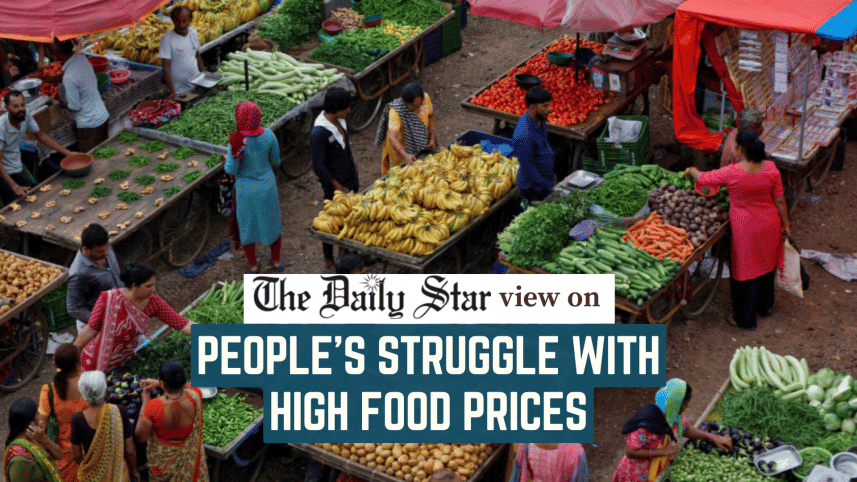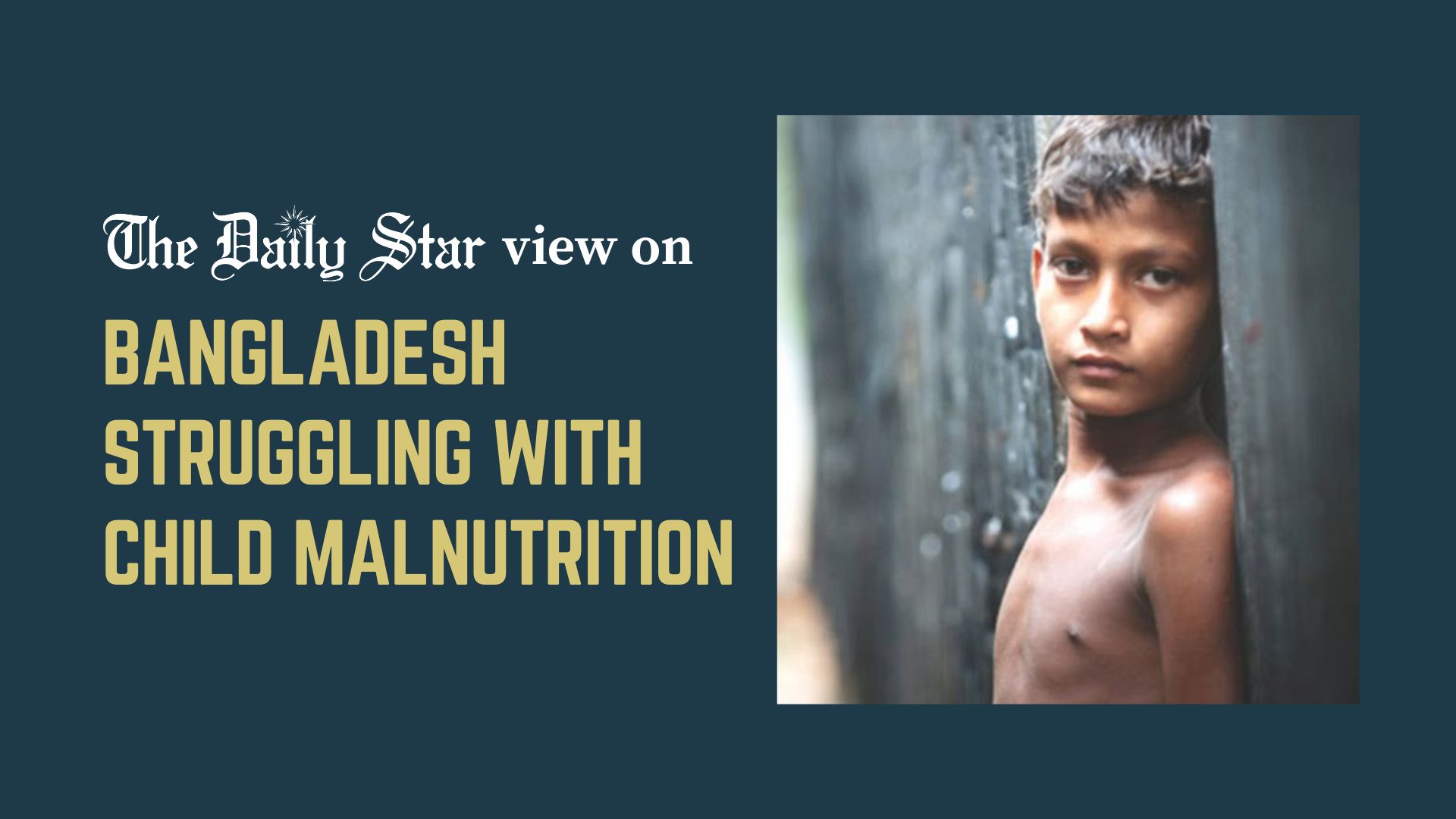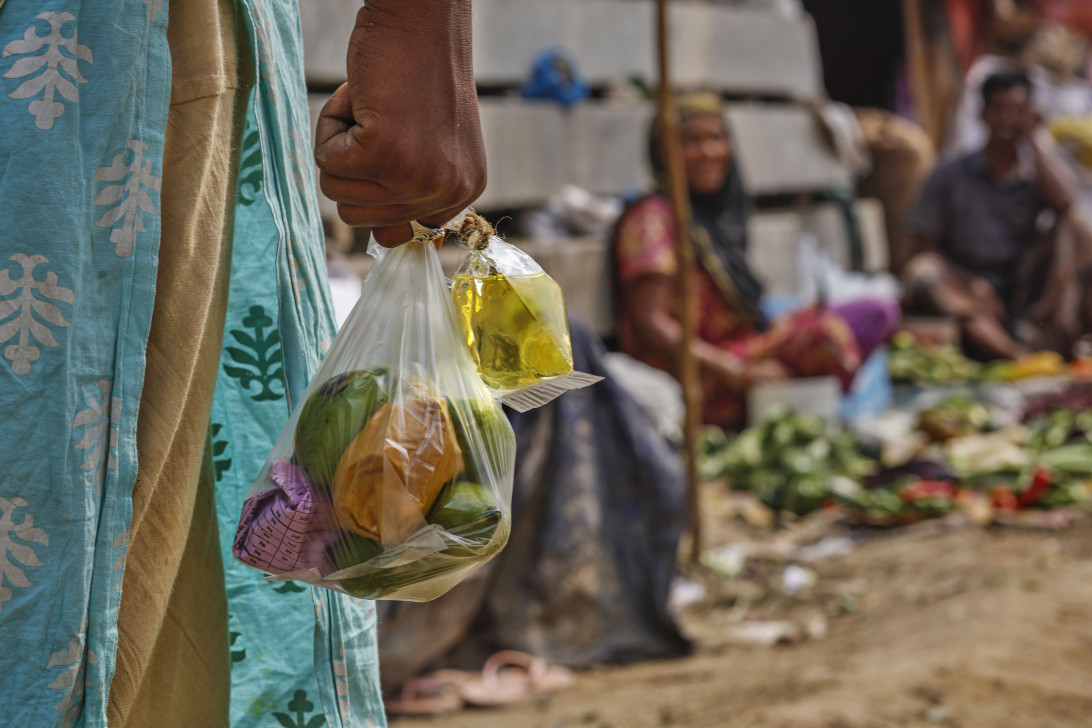Ensure proper access to nutritious food

This year's World Food Day came at a time when the nation remains plagued by high food prices. Although food production in Bangladesh has increased nearly five times since independence, millions of people still struggle to afford even one nutritious meal a day. The long queues in front of open market sales (OMS) trucks clearly show that proper access to nutritious food has now become a luxury for the poor.
According to agricultural economists, food insecurity affects nearly one-third of the population. The World Bank estimates that poverty has risen to 21.2 percent in FY25, up from 18.7 percent three years ago, while extreme poverty has climbed to 9.35 percent. Inflation, which reached 10 percent in FY25, continues to erode people's purchasing power, especially for low-income workers whose real wages fell by two percent during the same period. Meanwhile, the Power and Participation Research Centre (PPRC) has warned that 18 percent of households just above the poverty line are now at risk of falling below it. And for the poorest 40 percent of households, survival increasingly depends on borrowing, with household debts rising by seven percent over the past six months.
An estimated loss of 20 lakh jobs between 2023 and 2024, particularly in the service sector, has deepened the crisis. For instance, while talking to this daily, Rosy, who lost her job after the buying house where she worked closed, says she now relies on OMS trucks for food. And day labourers like Delwar survive on lentils and vegetables, often borrowing to feed their families. Across major cities, such stories are increasingly common.
While the government's OMS programme provides temporary relief, its limited reach and inadequate supply expose the weakness of our food distribution system. A recent report by the Research and Policy Integration for Development (RAPID) found that although cities host a growing number of low-income earners, 64 percent of extremely poor urban households remain excluded from state assistance. This imbalance, with policies still largely focused on rural areas in an increasingly urban economy, has left millions of city dwellers severely exposed to hunger.
The government, therefore, must act urgently to control high food inflation and adopt a comprehensive, rights-based national food policy. As experts have suggested, expanding OMS coverage, introducing a universal rationing system, increasing focus on urban areas, and investing in storage and cold-chain logistics—which can reduce food waste—should be immediate priorities. We have made significant progress in agricultural production, but true development will only come when every citizen will have access to safe and nutritious food.



 For all latest news, follow The Daily Star's Google News channel.
For all latest news, follow The Daily Star's Google News channel. 

Comments